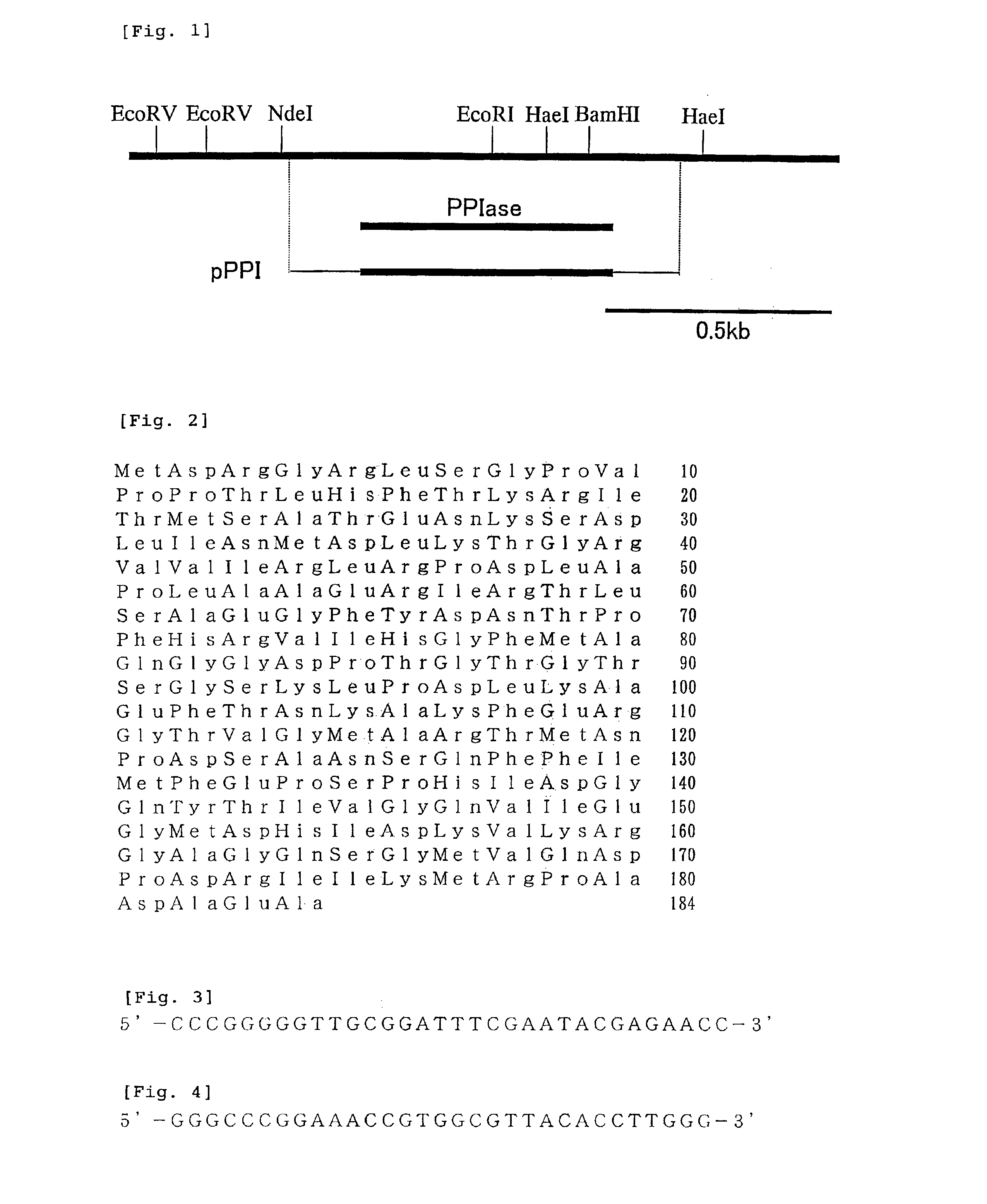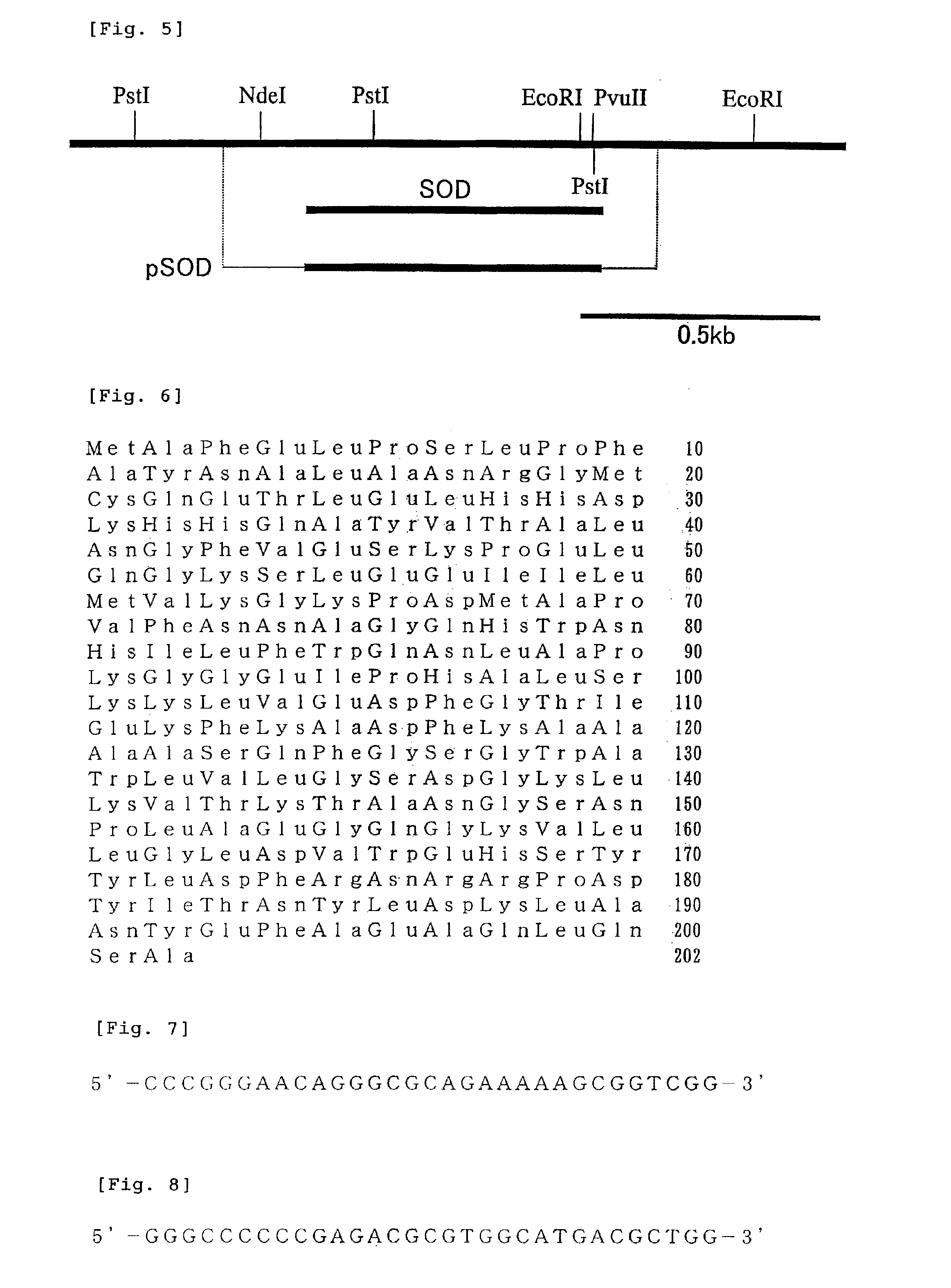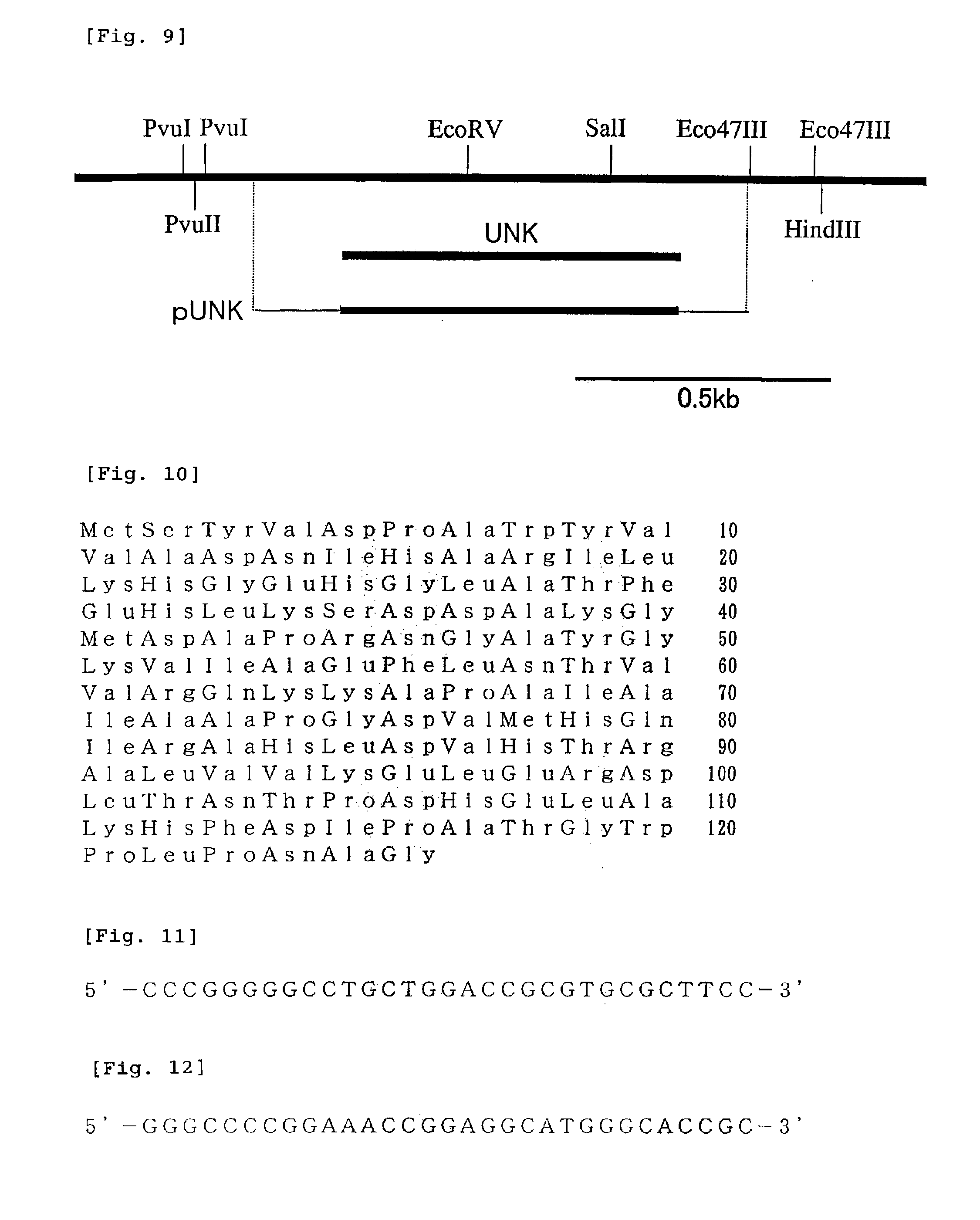Gene related to growth promoting function of acetic acid bacterium, acetic acid bacterium bred using the gene and method for producing vinegar using the acetic acid bacterium
a technology gene, which is applied in the field of gene related to growth promoting function of acetic acid bacteria, acetic acid bacterium bred using the gene and method for producing vinegar using acetic acid bacteria, which can solve the problems of not being confirmed whether, and achieve the effects of promoting growth, promoting growth, and promoting acetic acid bacterial growth
- Summary
- Abstract
- Description
- Claims
- Application Information
AI Technical Summary
Benefits of technology
Problems solved by technology
Method used
Image
Examples
example 1
Cloning of a Genomic DNA that Encodes a Protein having a Function of Promoting Growth from Gluconacetobacter entanii and Determination of the Nucleotide Sequence and the Amino Acid Sequence
(1) Identification of Acetic Acid-Stable Protein
[0084]Bacterial cells of Acetobacter altoacetigenes MH-24 strain (deposited as FERM BP-491), which is a strain of Gluconacetobacter entanii, were disrupted with a French press, and the lysate was subjected to a centrifugation (7,500×g, 10 minutes) to remove intact bacterial cells to provide a supernatant. In order to extract from the supernatant a protein that is stable to acetic acid, acetic acid adjusted to pH 4.0 was added to the supernatant to the final concentration of 1 M. Proteins that became insoluble due to the addition of acetic acid were removed by centrifugation (7,500×g, 10 minutes), and a clear supernatant containing a protein that is soluble even in the presence of acetic acid and is stable to acetic acid was obtained.
[0085]The obtaine...
example 2
Effect of Promoting Growth in a Transformant Transformed with a Gene Having a Function of Promoting Growth, Derived from Gluconacetobacter entanii (Part 1)
(1) Transformation of Acetobacter aceti
[0111]Among DNA fragments derived from Acetobacter altoacetigenes MH-24 strain (FERM BP-491), cloned as stated above, an DNA obtained in spot AAR1 was amplified by the PCR method using KOD PLUS™ (Toyobo), and the amplified DNA fragments were inserted into the restriction enzyme SmaI-cleavage site of an acetic acid Escherichia coli shuttle vector pGI18, to prepare plasmid pPPI. FIG. 1 shows a schematic of the amplified fragment inserted into the plasmid.
[0112]The PCR method was specifically performed as follows. That is, a PCR was performed using the genome DNA of Acetobacter altoacetigenes MH-24 strain as a template, and primer 1 (its nucleotide sequence is shown in FIG. 3) and primer 2 (its nucleotide sequence is shown in FIG. 4) as a primer, and also using KOD PLUS™ KOD Plus (Toyobo), unde...
example 3
Effect of Promoting Growth in a Transformant Transformed with a Gene Having a Function of Promoting Growth, Derived from Gluconacetobacter entanii (Part 2)
[0117]Plasmid pSOD was produced in the same manner as in Example 2 except that the DNA obtained in spot AAR2 was used, and primer 3 (its nucleotide sequence is shown in FIG. 7) and primer 4 (its nucleotide sequence is shown in FIG. 8) were used as a primer. FIG. 5 shows a schematic of the amplified fragment inserted into the plasmid.
[0118]In the same manner as in Example 2, this pSOD was transformed into Acetobacter aceti No. 1023 strain by the electroporation method, and the transformant was confirmed to be retaining a plasmid possessing a gene having a function of promoting growth. Subsequently, in the same manner as in Example 2, a comparison was made between the transformant and the original strain with respect to the growth on the acetic acid-added medium, based on the average of the absorbance values measured at 660 nm. Cons...
PUM
| Property | Measurement | Unit |
|---|---|---|
| pH | aaaaa | aaaaa |
| temperature | aaaaa | aaaaa |
| temperature | aaaaa | aaaaa |
Abstract
Description
Claims
Application Information
 Login to View More
Login to View More - R&D
- Intellectual Property
- Life Sciences
- Materials
- Tech Scout
- Unparalleled Data Quality
- Higher Quality Content
- 60% Fewer Hallucinations
Browse by: Latest US Patents, China's latest patents, Technical Efficacy Thesaurus, Application Domain, Technology Topic, Popular Technical Reports.
© 2025 PatSnap. All rights reserved.Legal|Privacy policy|Modern Slavery Act Transparency Statement|Sitemap|About US| Contact US: help@patsnap.com



